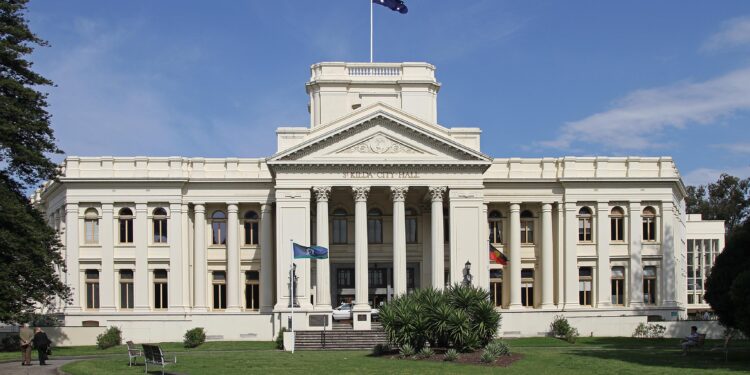In a move that has sparked significant debate and protests across the nation, French authorities have issued a directive for town halls to remove Palestinian flags that were raised to commemorate President Emmanuel Macron’s recent recognition of Palestinian statehood. This announcement comes amid heightened tensions surrounding France’s foreign policy in the Middle East and the nation’s internal discourse on immigration and identity. The decision has ignited a wave of criticism from pro-Palestinian activists and local officials who view the removal as a stifling of expression and solidarity. As France grapples with its political landscape, the implications of this order extend beyond local municipalities, highlighting the friction between national policy and grassroots support for global humanitarian causes.
France’s Controversial Directive on Palestinian Flags in Town Halls Sparks Political Debate
The recent directive from the French government mandating the removal of Palestinian flags in town halls has ignited a firestorm of political debate across the nation. While President Emmanuel Macron’s administration has stated that the decision aims to uphold neutrality in public spaces, critics argue that it undermines important expressions of solidarity with the Palestinian cause. This move follows an uptick in flags being flown in various municipalities, prompted by the acknowledgement of Palestinian statehood by the French government, leading to questions about the implications for free speech and local governance.
Supporters of the directive claim it is a necessary step to maintain political neutrality within local administrations. On the other hand, opponents view it as an attempt to suppress visibility for Palestinian rights. Key points of contention include:
- Freedom of Expression: Many believe that local authorities should have the autonomy to express solidarity with international causes.
- Cultural Significance: The flags have become symbols of hope for many, representing struggles against oppression.
- Political Implications: The directive could affect France’s standing in the broader Middle Eastern geopolitical context.
Implications of Macron’s Recognition: Navigating National Identity and International Relations
Emmanuel Macron’s decision to formally recognize Palestinian statehood has sent ripples across French political and social landscapes, prompting both celebration and condemnation. This recognition could be seen as a progressive step towards addressing longstanding territorial and humanitarian disputes, yet it raises complex questions regarding national identity. As local governments respond to the national directive by removing Palestinian flags previously displayed in solidarity, a broader tension emerges within the fabric of French society. This move from town halls reflects the struggle between supporting international diplomacy and managing domestic expectations of multicultural unity.
On the international stage, France’s action signals a potential shift in alliances and foreign policy priorities. Many European nations are watching closely, weighing the implications of Macron’s recognition on EU relations with both Israel and Palestine. The response can be multifaceted, leading to heightened diplomatic dialogues or even increased tensions in the region. Key considerations for France will include:
- The impact on relations with Israel, which could become strained if Paris continues down this path.
- Reactions from other Arab nations, as France balances its interests in the Middle East.
- The influence on domestic politics, with various factions either embracing or opposing the recognition.
Recommendations for Municipal Compliance Amid Rising Social Tensions and Diverging Public Opinions
In the face of escalating social tensions and a diverse array of public opinions, municipal authorities must adopt strategic measures to ensure compliance while promoting community cohesion. Local governments are encouraged to consider the following actions:
- Engage in Dialogue: Foster open channels of communication with community leaders and residents to address concerns and understand various perspectives.
- Promote Inclusiveness: Implement initiatives that celebrate diversity and inclusivity, ensuring that all voices are heard and valued.
- Establish Clear Guidelines: Develop and disseminate policies regarding the display of political symbols in public spaces to avoid unilateral actions that may provoke discontent.
- Provide Educational Resources: Offer workshops or informational sessions to help residents understand the complexities of geopolitical issues that may affect local sentiments.
Moreover, it is crucial for municipalities to monitor the impact of their decisions on local dynamics. The following table outlines potential repercussions of public symbol displays in diverse communities:
| Action Taken | Potential Community Reaction |
|---|---|
| Fly Political Flags | Increased Tensions |
| Issue Neutral Statements | Perceived Lack of Stance |
| Facilitate Community Forums | Enhanced Understanding |
| Restrict Symbol Displays | Claims of Censorship |
The Way Forward
In summary, the French government’s directive to remove Palestinian flags from town halls underscores the ongoing tensions surrounding international recognition and symbolic gestures in the context of the Israeli-Palestinian conflict. As local officials navigate their responsibilities to adhere to national policies while responding to community sentiments, the controversy raises broader questions about civic expression and the politicization of public spaces. The discourse surrounding this issue is likely to persist, reflecting the complex dynamics of international relations and domestic governance in France. As new developments unfold, observers will be watching closely to see how this conflict continues to shape political dialogue and community actions across the nation.














